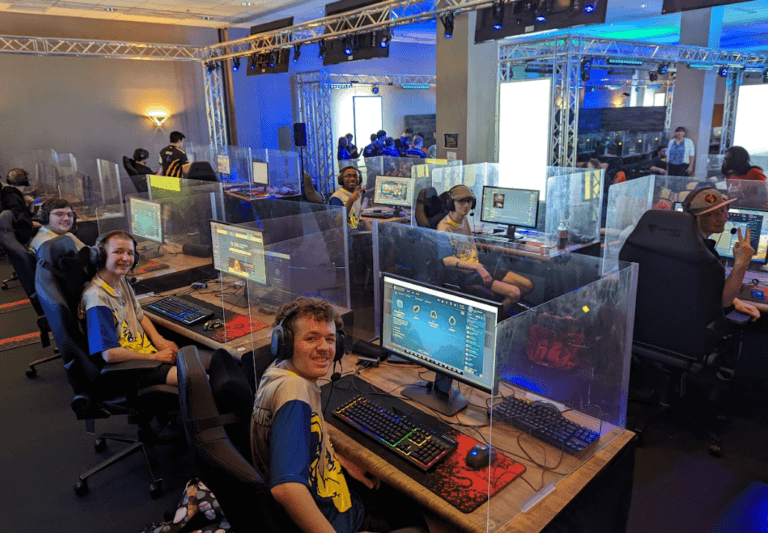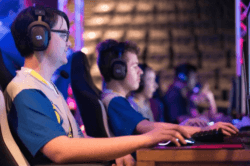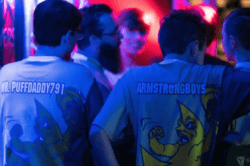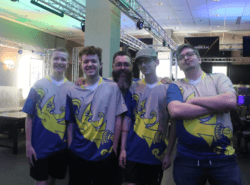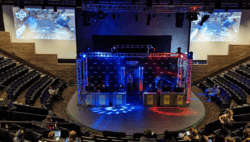Teamwork. Dedication. Accountability. Perseverance. Respect. Often these words are used to describe the traits student-athletes on the basketball court, baseball diamond, gridiron, or any other playing field learn. The same is true for those that participate in e-sports.
“Learning good communication skills and being reliable, being there when the team expects you to be there because if you’re not there when a match needs to be played you probably have to forfeit or have to reschedule, so those are things we teach as well,” says coach Dalton Cromer of Indiana Digital Learning School.
E-sports are on the rise, with many virtual and brick-and-mortar schools establishing clubs and teams to participate in tournaments. High school students can go on to join a collegiate team and even earn a scholarship to be on a team. Even for those who do not earn a scholarship, being part of an e-sports team is like being part of any team when it comes to an extracurricular activity that students put down on their college applications.
“It looks good on a college application that you were on a team. Even if they don’t take it all the way to the big leagues where they’re playing professionally, they’ve applied themselves to be part of a team and can apply that to college,” says Cromer.
Beyond college, e-sports are growing at such a rapid pace that there are many employment opportunities for those who do not play in a professional setting. Coaches are needed to help prepare students for their upcoming tournaments and ensure they play in a safe environment.
“I feel like gaming, in general, has a lot of toxicity in the online aspect of things—because you’re not face to face, it’s easy to hide behind a screen sometimes,” says coach Ben Underwood of Indiana Digital Learning School. “I think the ability for us to make sure we’re doing the best we can to make sure we’re doing things in more of a positive, nontoxic way is a big part of it.”
The value coaches bring to their teams goes beyond running an e-sports team. For many students, they are another member of their support system as they navigate their teenage years.
“Coaches are always ready to help, even if they don’t know what’s going on. They can help with any issues even if it’s not related to e-sports; they’re always there for every student,” says Garrett Armstrong, a junior and team captain at Indiana Digital Learning School.
Like other interscholastic athletic programs, at Indiana Digital Learning School, participants must maintain a specific grade point average. This ensures that students still put academics first before they can be part of any team.
“They help outside with students who are struggling with their homework, or anything they’re struggling with so they make sure they can focus on the game,” says Gabriel Armstrong, a senior at Indiana Digital Learning School and team captain of the League of Legends team.
The same level of competitiveness exists in the virtual arena as on any athletic field for those participating in e-sports. It requires the same level of commitment and perseverance as any athletic team, and just like in traditional sports, participants continue to improve their communication and problem-solving skills.
Want to know more about the e-sports competitions Stride has to offer? Check out our e-sports website to find out.
